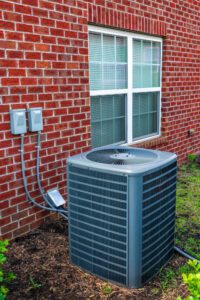For all of your household appliance repair needs ... We service all brands!
FIND A PART
Let’s explore some of the top HVAC brands homeowners can trust for their heating and cooling needs.
Here are our top ten HVAC brands that suit almost every home.

Trane is a name synonymous with quality and reliability in the HVAC industry. With over a century of experience, they have consistently produced high-performance heating and cooling systems.Â
Trane’s products are known for their durability and energy efficiency, making them a favorite among homeowners looking for long-lasting comfort.
Carrier is often credited with inventing modern air conditioning, and the company’s commitment to innovation and efficiency continues today. Their HVAC systems are renowned for their quality. They are often the go-to choice for homeowners prioritizing energy savings and cutting-edge technology.
Lennox is a brand that consistently ranks high in customer satisfaction surveys. Known for its quiet and efficient systems, Lennox offers a range of products to suit various budgets and needs.Â
Their commitment to sustainability is reflected in their energy-efficient offerings.
Daikin is a Japanese brand known for its innovative technology and energy-efficient systems. They’ve made a name for themselves by producing environmentally friendly HVAC products that effectively maintain indoor comfort.
Rheem is a trusted name in the HVAC industry, offering a wide range of heating and cooling products. They are known for their durable and efficient systems, often with industry-leading warranties, providing homeowners with peace of mind.
Bryant is a brand under the Carrier umbrella. Like its parent company, it is known for producing reliable and energy-efficient systems. Bryant’s products offer great value and have a strong durability reputation.
American Standard has a long history in the HVAC industry, dating back to the late 19th century. They are recognized for producing durable and efficient systems.Â
Their commitment to quality and innovation makes them a popular choice among homeowners.
Goodman is known for its budget-friendly HVAC systems that do not compromise quality. They offer a range of products that provide efficient heating and cooling solutions for homeowners on a budget, making indoor comfort accessible to a broader audience.
Mitsubishi Electric is a leader in ductless HVAC systems. Their mini-split and multi-split systems offer flexible and energy-efficient solutions for homes, particularly those without ductwork.Â
These systems are known for their zoned cooling and heating capabilities.
Amana, owned by the Goodman Manufacturing Company, offers reliable and cost-effective HVAC solutions. Their products are designed to provide efficient heating and cooling while keeping your budget in mind.
When choosing an HVAC brand for your home, it’s essential to consider factors such as your home’s size, climate, and budget. Additionally, professional installation and regular maintenance are crucial to ensuring your HVAC system operates at its best.Â
Before deciding, consult A-Tech Appliance Repair to determine the best system for your needs.